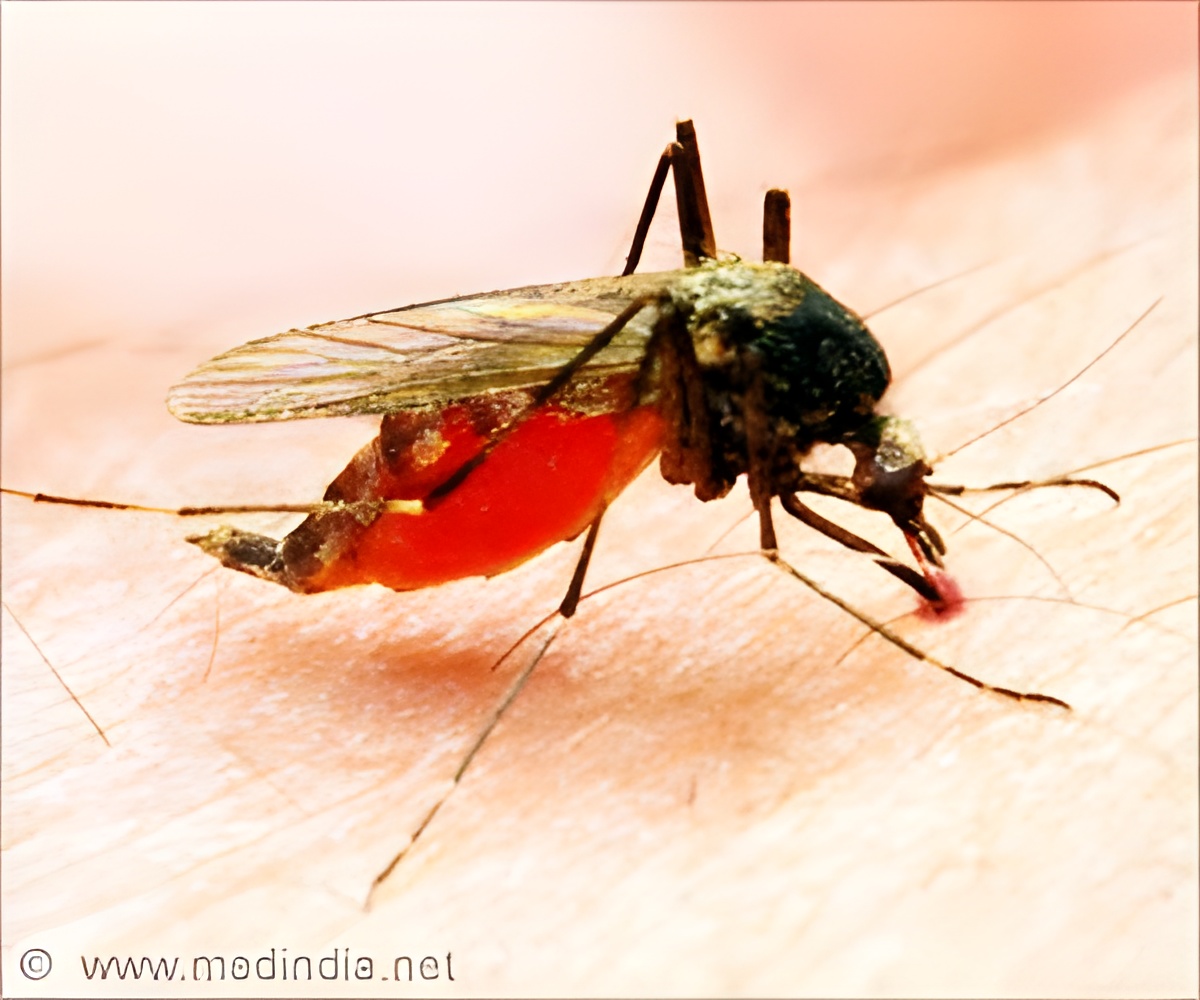
Yilmaz went on to find that expression of alpha-gal by these bacteria, when resident in the gut, is sufficient to induce the production of natural antibodies that can recognize the same sugar molecule when expressed at the surface of Plasmodium parasites. He then found that these antibodies attach to the alpha-gal sugar at the surface of Plasmodium parasites, immediately after the inoculation in the skin by a mosquito, the vector of malaria transmission.
The study found that when this occurs, the anti-alpha-gal antibodies activate an additional arm of the human immune system, called the complement cascade, which goes on to punch holes and kills the Plasmodium parasite before it can move out of the skin. The protective effect is such that when present at high levels at the time of the mosquito bite, anti-alpha-gal antibodies manage to arrest the transition of the parasite from the skin into the blood stream and by doing so block malaria transmission.
The researchers found that when mice are vaccinated against a synthetic form of alpha-gal that is rather easy and inexpensive to produce, they produced high levels of circulating anti-alpha-gal antibodies that are highly protective against malaria transmission by mosquitoes. Whether the same "trick" can be applied to humans and in particular to young infants to confer protection against malaria transmission is a "burning question" that remains to be answered.
The scientists added that children under 3 years old do not have sufficient levels of circulating anti-alpha-gal antibodies, which might be one of the reasons for their exquisite susceptibility to malaria. One of the beauties of the protective mechanism they just discovered is that it can be induced via a standard vaccination protocol, leading to the production of high levels of anti-alpha-gal antibodies that bind and kill the Plasmodium parasite. If they can vaccinate these young children against alpha-gal, many lives might be saved.
The study was published in scientific journal Cell.
Advertisement














